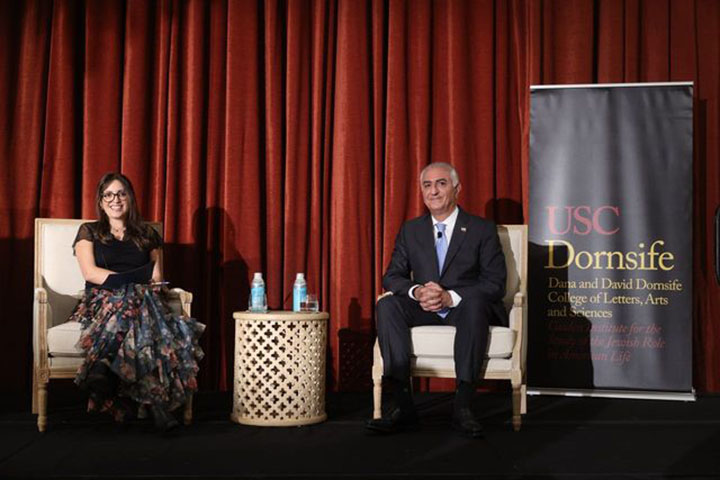Melina Gimal has been a Jewish community professional for most of her life. As a young girl she worked at Jewish Community Centers in Argentina, and later at Hillels in Washington and Miami. But most of her peers aren’t doing the same.
“They just have it in their minds that they are going to work for a bank or in real estate,” said Gimal, 26. “But they have so much to give to the Jewish community and it is a pity that we are losing them and they don’t want to get involved.”
The question of why the Jewish community isn’t recruiting and retaining more young Jewish leaders is one that the 20-Something Think Tank summit wants to answer.
The summit of 150 Jewish 20-somethings from all over America who will gather here in August to address what organizers consider the “recruitment crisis” of young Jewish leadership. Funded by the Michael Steinhardt/Jewish Life Network, the Charles and Lynn Schusterman Family Foundation and William M. Davidson, the summit hopes to address issues of Jewish leadership, recruitment and retention. It aims to find ways to make Jewish leadership positions more attractive to young people choosing a career path.
“Our assumption is that we have enough in this field [of Jewish leadership] to offer and that there are enough people who are sharp and bright who will want to chose this sector if we make it appealing to them salary wise and benefit wise,” said Rhoda Weisman, executive director of the Professional Leader Project (PLP), the sponsoring organization of the summit.
“The goal of the conference is not to push them into [leadership], but to expose them to it,” she said. “Most of them don’t even know about the different possibilities [for communal careers], such as being editors, running endowments or strategic planning.”
The PLP is currently receiving about 10 applications per day for participation in the three-day summit. It is choosing participants from among college and graduate students, newly inaugurated Jewish professionals and those working in the mainstream marketplace. After the Think Tank, 20 of the participants will have the opportunity for Career Break — three days when they will shadow top Jewish professional leaders for insights into the career arena.
The summit is the last part of a three-piece research project funded by those philanthropists who examined Jewish leadership development across America. The first two parts of the project were national studies conducted by The Institute for Jewish and Community Research (IJCR) in San Francisco, and the Cohen Center for Modern Jewish Studies (CMJS) at Brandeis University, respectively. The studies found that that the community wasn’t doing enough to recruit and retain young leaders.
“We found a vigorous and healthy preservice picture; there are a lot of choices around the country for places to go to acquire this preprofessional training [to work in the Jewish community], but our concern was in-service training,” said Steve Dobbs, a senior fellow at the IJCR and one of the authors of the study, “Professional Development in the Jewish Community.” The study based its research on interviews with 60 Jewish professionals and it will be published later this month.
Dobbs also said that they found there was a persistent undersupply of well-trained Jewish educators and professionals at mid- and entry-level positions, because people were repelled by the low status, low remuneration, heavy workload and absence of professional development involved in Jewish communal life.
“We found people leaving their careers early because of a lack of professional development opportunities, people leaving because of communal politics and the complicated dynamics between the lay and staff professionals at the agencies,” he said.
“The really critical piece is to figure out how to support people who work in the Jewish community and how to help them have lifelong careers that pay sufficiently and have sufficient reinforcements,” said Leonard Saxe, director of CMJS and one of the authors of the study, “The Recruitment and Retention of Jewish Professionals,” a survey of Jewish professional life in six communities that will be published in August.
And as for what makes a good leader, Gimal says that it takes an ability to listen.
“You really have to have the capacity to listen to the people and really care and understand their needs,” she said. “And, of course, you need to like what you are doing and have a passion for it.”
For more information on the 20-Something Think Tank,
visit www.jewishleaders.net .































